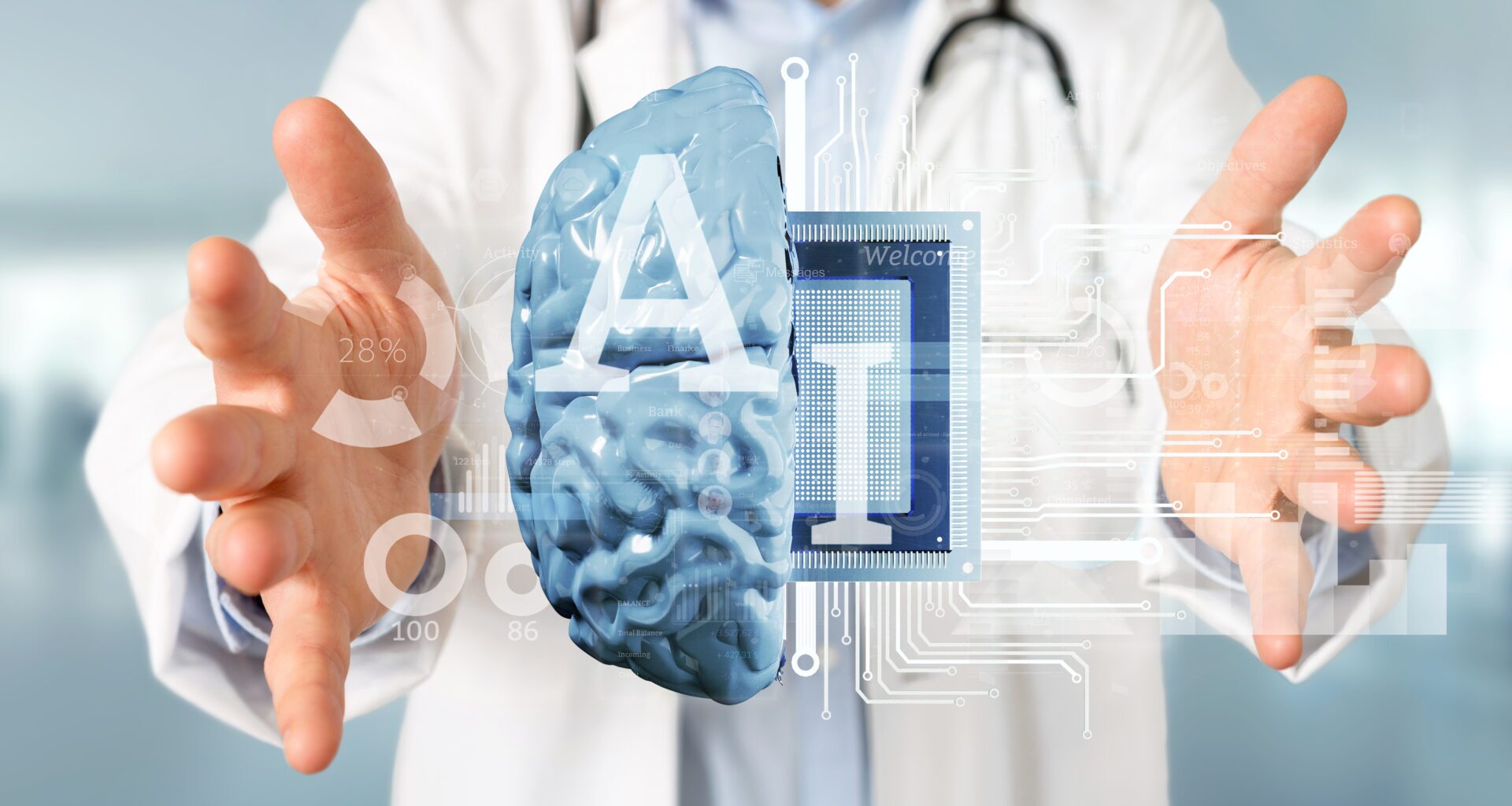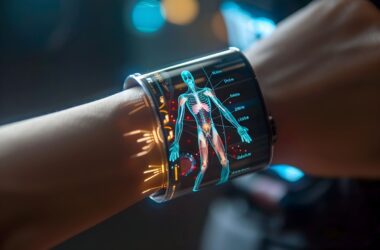In today’s rapidly evolving digital landscape, artificial intelligence (AI) has emerged as a game-changing force, transcending various industries and profoundly impacting the way we live and work. The healthcare sector, in particular, stands at the precipice of a remarkable transformation as AI technology continues to permeate and reshape the delivery of medical services and patient care.
AI uniquely can process vast amounts of data, recognize patterns, and make intelligent decisions. This technology is poised to revolutionize healthcare in ways that were once considered challenging and, in many cases, impossible. From early and accurate disease detection to personalized treatment plans and streamlined operations, AI is poised to have a profound and far-reaching impact on how we approach the healthcare industry.
Content Index:
- AI In Medical Diagnostics
- AI For Drug Discovery And Development
- Personalized Medicine And AI
- AI In Healthcare Operations And Management
- Ethical Considerations And Challenges

AI In Medical Diagnostics
For Early And Accurate Disease Detection
One of AI’s most promising applications in healthcare is its ability to enhance medical diagnostics. By harnessing advanced algorithms and machine learning (ML) techniques, AI can analyze complex medical imaging data, such as X-rays, MRI scans, and similar tools with unprecedented accuracy and efficiency. These AI-powered diagnostic tools can spot patterns and anomalies that may be skipped or missed by human interpretation, leading to earlier detection of diseases and improved patient outcomes.
For instance, artificial intelligence-driven systems have demonstrated remarkable proficiency in detecting breast cancer from mammograms, with some models outperforming experienced radiologists in terms of accuracy. Similarly, AI algorithms have been developed to analyze retinal scans and pinpoint signs of diabetic retinopathy, a leading cause of blindness, enabling timely intervention and treatment.
AI For Drug Discovery And Development
To Accelerate The Search For New Treatments
The development of new drugs and therapies is a time-consuming and resource-intensive process, often taking years and billions of dollars in investment. However, AI is poised to revolutionize this process by expediting the drug discovery and development pipeline in healthcare and medical realm. By scrutinizing vast amounts of data, including molecular structures, biological pathways, and clinical trial results, AI can identify potential drug candidates and predict their efficacy and safety profiles with remarkable accuracy.
Moreover, AI can optimize drug formulations, predict drug-drug interactions, and streamline clinical trials, limiting the time and costs linked with bringing new treatments to market. For example, AI-driven platforms have been used to identify promising drug candidates for conditions like Alzheimer’s disease, cancer, and rare genetic disorders, offering hope for patients and their families.
Personalized Medicine And AI
To Tailored Treatment Plans
One of the most sought-after applications of AI in healthcare is its ability to enable personalized medicine. By analyzing an individual’s medical records, genetic information, lifestyle factors, and other relevant data, AI can build tailored treatment plans that take into account each patient’s unique characteristics.
AI algorithms can single out patterns and make recommendations based on an individual’s specific medical condition, genetic makeup, and response to previous treatments. This personalized line of action increases the possibility of successful outcomes and cuts down the risk of adverse reactions or ineffective therapies.
For example, AI-powered tools are being developed to predict the most effective cancer therapies for individual patients based on their genetic profiles and tumor characteristics. Similarly, AI is being employed to personalize medication dosages and treatment regimens for chronic conditions like diabetes, ensuring optimal management and improved quality of life for patients.
AI In Healthcare Operations And Management
To Optimize Efficiency
Beyond its clinical applications, AI is also revolutionizing the operational and management aspects of healthcare. By utilizing AI’s ability to analyze complex data and identify patterns, healthcare providers can streamline various processes, such as scheduling appointments, managing resources, and predicting patient flow.
AI-powered solutions can optimize hospital logistics, reducing wait times and enhancing overall efficiency. For instance, AI algorithms can analyze historical patient data, staffing levels, and resource availability to predict demand and allocate resources accordingly, ensuring smooth operations and improved patient experiences.
Moreover, AI can assist in administrative tasks, such as coding and billing, decreasing the burden on healthcare professionals, and enabling them to deliver high-quality patient care.
Ethical Considerations And Challenges
To Address The Concerns Of AI In Healthcare
It is vital to address the ethical and regulatory concerns surrounding the implementation of AI in healthcare despite its undeniable potential benefits. Data privacy and security should have a high focus area, as AI systems depend on vast amounts of sensitive patient data. Robust measures must be in place to protect the personal information and control unauthorized access or misuse.
Additionally, the issue of algorithmic bias must be addressed, as AI models can perpetuate or increase the existing biases present in the data they are trained on. This could result in unfair outcomes, potentially exacerbating existing healthcare disparities.
Regulatory frameworks and guidelines must be developed to double sure the responsible and ethical deployment of AI in healthcare. These regulations should address issues such as transparency, accountability, and the need for human oversight in decision-making processes involving AI.
Moreover, healthcare professionals must be prepared to adapt to the integration of AI into their workflows. Ongoing education and training is paramount to ensure that AI is used as a collaborative tool, enhancing human expertise rather than replacing it entirely.
Final Words
The transformative effect of AI on the healthcare industry is undeniable. From early and accurate disease detection to personalized treatment plans and streamlined operations, AI is poised to revolutionize how we approach patient care and drive innovation in healthcare.
However, as we embrace this technological revolution, it is equally important to address the ethical and regulatory concerns surrounding AI in healthcare. By encouraging collaboration between researchers, healthcare professionals, and policymakers, we can develop robust frameworks and guidelines to ensure AI’s responsible and ethical deployment while maximizing its potential to improve patient outcomes and drive positive change in the healthcare system.
As we look to the future, the integration of AI in healthcare will continue to shape a more efficient, personalized, and accessible healthcare system, transforming how we approach diagnosis, treatment, and overall patient care. It is an exciting time for the healthcare industry, and the impact of AI will undoubtedly be felt for generations to come.














